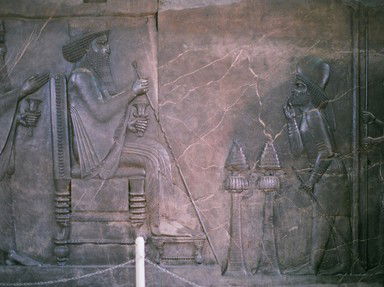
Xerxes Got a Bum Rap Trivia Quiz
Or Did He?
Xerxes is quite an enigma. The Persians he ruled favored an oral history, which means that the people who disliked him - the Babylonians and Greeks - were left to write about his exploits in an unflattering way. Did he get a bum rap? Let's see!
A collection quiz
by ponycargirl.
Estimated time: 3 mins.